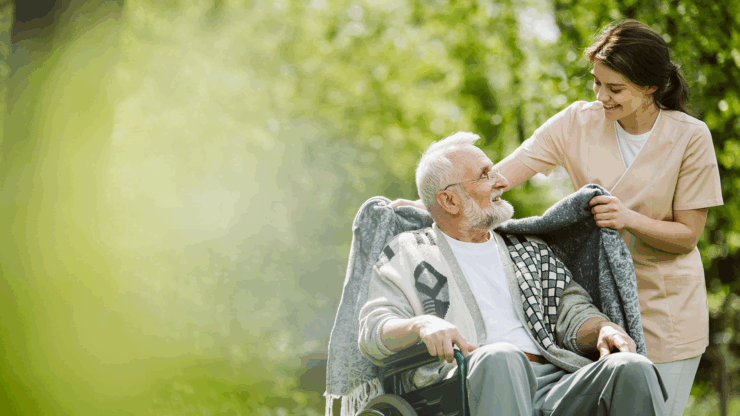
Mental Health Awareness Month: Early Signs of Elderly Mental Health Issues
Mental Health Awareness month is a time to be mindful of those living with mental or behavioral health issues and to help reduce the stigma so many may experience. Aging is a fact of life. We need to focus on healthy aging, including behavioral health issues during Mental Health Awareness month and every day.
While it may not always be easy to recognize the early symptoms of a developing mental health condition in elderly people, we’ve created a list of some important signs and symptoms to look out for:
- Changes in Eating Habits – a sudden change in eating habits can be equally troubling. Elderly people suffering from mental illness may binge on food or avoid eating altogether. Increased or decreased appetite or sudden weight loss or gain may point to an underlying mental health problem.
- Changes in personal care – people with mental health issues sometimes noticeably alter their regular personal care routines. Seniors may unexpectedly change their overall appearance or the way they dress or they may neglect personal hygiene by forgoing activities of daily living such as shaving, washing, or changing clothes.
- Social isolation – seniors with psychological problems often withdraw from their social circles. Social isolation and loneliness have been linked to higher risks for a variety of physical and mental conditions: high blood pressure, heart disease, obesity, a weakened immune system, anxiety, depression, Alzheimer’s disease, and even death.
- Sleep changes – sudden sleep changes, such as excessive sleeping or difficulty sleeping, maybe a sign of a mental health disorder. Mental health can disrupt healthy sleep patterns, which leads to fatigue and lethargy.
- Depressed mood – warning signs of depression include noticeable changes in mood, energy level, or appetite. Having trouble feeling positive emotions, increased worry, anger, irritability, or aggressiveness are also signs of depression. If untreated, the impact of depression on health in older adults can be severe.
- Memory or language loss – if an elderly loved one is showing signs of memory loss, it could be something serious that requires treatment. Indicators of memory problems are misplacing belongings, inability to recognize a person the elderly person could recognize before and ask for the same information they inquired about minutes earlier.
Caring for a loved one that is suffering from a mental or physical health condition can be scary, but you are not alone. LifeWorx can provide you or your loved one with the best caregiver to help with the health condition, and treatment plan, and ensure the quality of life you or your loved one deserve to start living a better and positive life today.
Find your peace-of-mind.
Explore LifeWorx’ in-home elder care services.

















